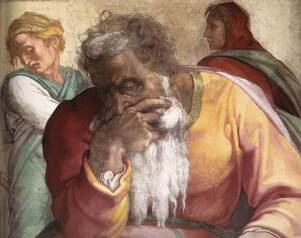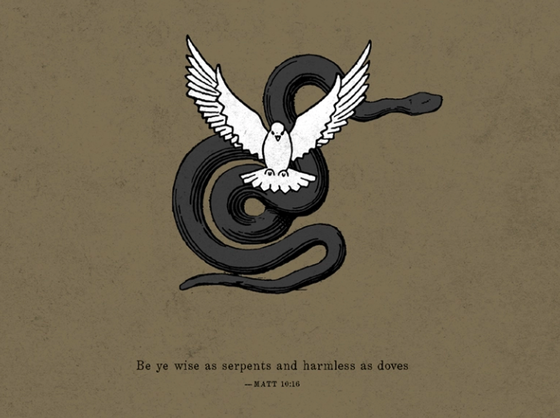|
How many of you knew that Wednesday, October 20th was Information Overload Awareness Day? I heard about it on the radio during my morning commute—I listen primarily to hear the traffic report, but I occasionally get a few nuggets of useful information. As I Googled it to see what I was missing, I learned “this day is for taking a step back from the amount of information we’re faced with on a daily basis. From social media and online news to emails and text messages, we’re constantly bombarded with a plethora of information. On this day, we allow ourselves to take a break.” The fact that there is an Information Overload Awareness Day forced me to spend time discovering what I had been missing. As I read about it, I realized that if I had actually observed the day correctly, I would not have taken time to know the real purpose for the day. And now my mind is filled with the knowledge that there needs to be another Information Overload Awareness Day, and real soon, so I can observe it correctly.
Bottom line is, hearing that there is an actual Information Overload Awareness Day, forced me to take time to learn what it meant. And in taking time to discover what it was, I actually violated the very purpose for which it was created—I went into information overload! That knowledge made me long for simpler times when we didn’t have immediate access to information. As a kid, we listened to KASL—a local AM radio station where I remember listening to my two favorite programs: the Lone Ranger and Cisco and Poncho. At that time I was actually a part of the information dissemination process. As a paperboy, I delivered the Denver Post, while other boys delivered the Rapid City Journal to those who were subscribers —both of them were daily papers. We also had Newcastle’s Newsletter Journal that provided local information on a weekly basis. Then things got exciting—we got a television set when I was in third grade. We had two channels—when the booster tower was working. But they weren’t 24-7 stations back then. At that time we lived only a few blocks from the county library, so I made a lot of trips there—particularly in the summer. And then one day, we got a set of encyclopedias, and suddenly my world of knowledge exploded! Yes, I read the encyclopedia. What a change in the scope of one short lifespan. Today, we have instant access to unlimited sources of information, misinformation, and disinformation. Our problem isn’t ACCESS; it is the ABILITY to evaluate the credibility of the sources and to process the substance of the information so that we can make the appropriate APPLICATION of that knowledge. As you pause to consider the glut of information you have at your fingertips, how do you respond? Some of us quickly conclude that “Ignorance is Bliss.” Now there is a kernel of truth in that cliché because God asked Adam and Eve to not eat from the Tree of the Knowledge of Good and Evil. He was trying to limit their exposure to evil. However, once “that cat was out of the bag,” it has been impossible to return to a state of innocence by simply remaining ignorant. In fact, Proverbs 18:15 encourages us to seek knowledge: “The heart of the prudent acquires knowledge, and the ear of the wise seeks knowledge.” So should we go to the other extreme and seek to fill our minds with “all knowledge?” The champions on Jeopardy seem to do pretty well with that philosophy. However, I quickly see three basic problems with this strategy. One is that a mind full of knowledge generally generates a heart full of pride. “We know that we all have knowledge. Knowledge puffs up, but love edifies. And if anyone thinks that he knows anything, he knows nothing yet as he ought to know. But if anyone loves God, this one is known by Him” (I Cor. 8:1-3). Another issue is the one Solomon encountered as he sought “all knowledge.” In the end, his summary of this way of life was, “Be admonished…of making many books there is no end, and much study is wearisome to the flesh. Let us hear the conclusion of the whole matter: Fear God and keep His commandments, for this is man’s all. For God will bring every work into judgment, including every secret thing, whether good or evil” (Ecc 12:12-14). In other words, there are certain topics and areas of knowledge that have more eternal value than other areas do. Proverbs 15:14 states it this way, “The heart of him who has understanding seeks knowledge, but the mouth of fools feeds on foolishness.” A third issue we face in our pursuit of “all knowledge” is our time constraint. We are not an eternal God, but are constrained by the limits of time—we will NEVER know it all. But in an effort to be like God, we take shortcuts in our pursuit of all knowledge. For example, we scan e-mails and miss important information. I replied to an e-mail last week requesting specific information. In my reply, I clearly provided the information requested in the order it was requested. I received a second e-mail with “significant typos” that impacted the meaning along with a somewhat terse request for information I had already provided. Their “scanning” cost me time—but before I got too hyped up, I admitted that I have done the same thing. Or, how often do we “assume” that the headline on a news article is accurate? Too often when I have taken time to actually read an article—and some of them can get pretty long—I have found buried deep in the article a statement that actually makes the headline false. Basing my knowledge on what I gleaned by scanning, or listened to a short sound-bite, or relying on a headline to be accurate WILL ALWAYS get me in trouble. So what should we do so we can be informed and engaged? I just alluded to the most important one--we need to be still and know that He is God (Psalm 46:10). Paul gives us two additional items that will also help: 1) Fill our minds with the right information. “Whatever things are true, whatever things are noble, whatever things are just, whatever things are pure, whatever things are lovely, whatever things are of good report, if there is any virtue and if there is anything praiseworthy—meditate on these things” (Phil. 4:8). 2) Fill our lives with the right actions. “The things which you learned and received and heard and saw in me, these do, and the God of peace will be with you” (Phil. 4:9) Yours in Christ, Mark R. Elliott, AMS
0 Comments
 / Jeremiah was called as a prophet while he was a young man. It was n the thirteenth year of the reign of King Josiah who at the time was only twenty-one himself. Five years into Jeremiah’s ministry, Josiah ordered that the temple be refurbished. It had fallen into disrepair during the 55-year reign of his grandfather Manasseh and the brief two-year reign of his father Amon. Josiah did not inherit a great legacy as II Kings 21:2 says of Manasseh, “He did evil in the sight of the Lord, according to the abominations of the nations whom the Lord had cast out before the children of Israel.” And of his father Amon, II Kings 21:21-23 says, “He walked in all the ways that his father had walked; and he served the idols that his father had served, and worshiped them. He forsook the Lord God of his fathers, and did not walk in the way of the Lord. Then the servants of Amon conspired against him, and killed the king in his own house.” The temple renovations that began with the goal of doing a major rebuilding of the physical structure, took a major shift when the Book of the Law was discovered. It seems like the Word of God had gotten lost in the people’s pursuit of happiness. Hilkiah the high priest said to Shaphan the scribe, “I have found the Book of the Law in the house of the Lord.” And Hilkiah gave the book to Shaphan, and he read it. So Shaphan the scribe went to the king, bringing the king word, saying, “Your servants have gathered the money that was found in the house, and have delivered it into the hand of those who do the work, who oversee the house of the Lord.” Then Shaphan the scribe showed the king, saying, “Hilkiah the priest has given me a book.” And Shaphan read it before the king. Now it happened, when the king heard the words of the Book of the Law, that he tore his clothes” (II Kings 22:8-10) Josiah’s reaction to the Book of the Law provided some much-needed spiritual fresh air. Now the king sent them to gather all the elders of Judah and Jerusalem to him. The king went up to the house of the Lord with all the men of Judah, and with him all the inhabitants of Jerusalem—the priests and the prophets and all the people, both small and great. And he read in their hearing all the words of the Book of the Covenant which had been found in the house of the Lord. Then the king stood by a pillar and made a covenant before the Lord, to follow the Lord and to keep His commandments and His testimonies and His statutes, with all his heart and all his soul, to perform the words of this covenant that were written in this book. And all the people took a stand for the covenant” (II Kings 23:1-3). With this kind of exciting beginning, how on earth did Jeremiah get tagged with the title “the Weeping Prophet?” The simple answer is that Josiah’s reforms were too little too late. II Kings 23:26-27 records the bad news that he heard from God: Nevertheless the Lord did not turn from the fierceness of His great wrath, with which His anger was aroused against Judah, because of all the provocations with which Manasseh had provoked Him. And the Lord said, “I will also remove Judah from My sight, as I have removed Israel, and will cast off this city Jerusalem which I have chosen, and the house of which I said, ‘My name shall be there.’” While contemporaries like Daniel, Hananiah, Mishael, and Azariah were taken to Babylon where God powerfully worked in their lives, God left Jeremiah in Judah. He was called to proclaim “thus sayeth the Lord” to men and women who refused to listen to the word of God. Eventually, he was taken against his will to Egypt where he died in the midst of an unrepentant people.
With all that is happening in our nation and our convention, I can’t help thinking about Jeremiah’s world. Is God removing His hand of protection from us? And if He has, is it too late for us to repent? I quickly reflected on these questions as I prayed about how I should respond to a pastor’s question I received via e-mail this weekend as some of us were processing the announced resignation of Dr. Ronnie Floyd. The pastor wrote, “I’m not sure what the future holds for the convention, but I know that the future of the church is strong. Any advice on how to lead through this mess or if there is anything to do to help the Convention?” After reflecting for a few minutes, I responded, “My suggestion is to do what I’m going to do: pray harder and with greater brokenness and work harder to keep biblical, life-transformative disciple-making THE main thing on my heart and on my agenda every day.” The reality for every pastor and every professing Christian is that there is only one person in the world that we have the authority and ability to change and that is our self. And when we are honest, we will admit there are days when that alone can be an overwhelming task. I’m a “To-Do List” kind of guy and here are some things I try to keep on the top of my list:
Yours in Christ, Mark R. Elliott, AMS Because of Dr. Ronnie Floyd’s announced resignation and the fact that some of you were able to meet him and his wife Jeana this spring at our minister and spouse retreat, I felt it appropriate to respond to his announcement. Like many of you, I have played Fact or Fiction, Truth or Dare, or a similar game. I enjoy them because they feed my hunger to “know” but even more importantly to “know the truth.” Some of you share another of my personality traits—an intensely logical approach to making decisions. Part of that is driven by the reality that my “heart is more deceitful than all else and is desperately sick; Who can understand it?” (Jeremiah 17:9) In the last few months, these values have caused me a lot of sleepless nights as an Executive Committee Trustee. I spent an inordinate amount of time reading and listening to conflicting “facts” as I sought to identify the “truth” in an environment where emotions were high. The October 5th SBC Executive Committee’s vote to waive attorney-client privilege is history, and the internal reviews of the Executive Committee and Credentials Committee are underway. As the issue of waiving attorney-client privilege was being debated, emotions seemed to rule the day while facts were shoved aside. A decision driven by our emotions (a desire to care well for sexual abuse survivors), feelings (that it had to happen NOW!), and the optics that waiving of attorney-client privilege was necessary to find the truth are now confronted with the fact that doing so is beginning to trigger unintended consequences for Southern Baptists. What we know today regarding unintended consequences is 1) several EC members, including myself, have resigned on moral and ethical grounds; 2) the law firm that has served the Southern Baptist Convention as general counsel since 1966 has formally withdrawn from that role, and 3) Dr. Ronnie Floyd has announced his resignation as EC President. In an October 11th letter to the Executive Committee the firm of Guenther, Jordan, and Price stated: The attorney-client privilege has been portrayed by some as an evil device by which misconduct is somehow allowed to be secreted so wrongdoers can escape justice and defeat the legal rights of others. That could not be further from the truth. In fact, the attorney-client privilege has been for centuries a pillar of this country’s jurisprudence and rules of evidence. The concept is rooted in a principle of judicial fairness and the belief that our nation of laws is best served if persons and entities can communicate with their legal counsel freely and confidentially. There is nothing sinister about it. It does not corrupt justice; it creates the space for justice. As we debated waiving attorney-client privilege, I heard two emotion-driven comments that have stuck with me and speak to the reality that too often we make decisions based on feelings rather than facts. One EC member stated, “Attorneys can’t be trusted, they will just say what the client wants them to say.” This was stated in spite of the fact that we received the same legal advice from two lawyers from Guenther, Jordan, and Price who are experts on non-profit law, two attorneys who specialize in law related to internal reviews, and a fifth lawyer who works with the insurance industry. They unanimously said, DO NOT WAIVE THIS PRIVILEGE!! Other EC members chose to believe the advice provided by the Sexual Abuse Task Force’s attorneys Linklaters LLC. I would suggest you Google “Linklaters LLC” along with the letters “LGBTQ+” to see what kind of law firm would advise a client to waive their attorney-client privilege. (Wake Up Call: LGBTQ Group Says 7 Big Firms Join Litigation Push on Rights) When you make decisions based on feelings, you don’t bother to ask why the Task Force couldn’t find a law firm that shares our Christian values to advise them to waive privilege. In case you hadn’t heard, Jeana’s mom passed away last Sunday, October 11th and the funeral was Wednesday. In Dr. Floyd’s announcement of his resignation he stated: While Jeana and I have no idea where we are going and what we will do in the future, today I submit my resignation as the President and CEO of the Southern Baptist Convention Executive Committee. I will serve through Sunday, October 31, 2021. If the average SBC messenger had the above information on what the attorney-client privilege is as clarified in the above letter from Guenther, Jordan, and Price, would they have voted differently at the convention this past June?
If the average SBC messenger had known that the “investigation” was going to cost well over $2 million, would they have voted to use a less expensive process that could still accomplish the purpose of transparency? If the average SBC messenger had known that a lawsuit charging sexual misconduct would be filed by Hanna-Kate Williams against LifeWay, Southern Seminary, the Executive Committee, and some of its former officers, would they have still called for the waiver of attorney-client privilege knowing that it would hinder us from effectively defending ourself? If the average SBC messenger had known that an ERLC trustee would release information stating that Russell Moore’s letters and the brief audio clips released were done so intentionally to impact the SBC’s presidential election, would they have voted differently? Reference: Letters from Russell Moore; SBC EC and ERLC resistance to sexual abuse reforms I wish my answer would be that with these additional facts, messengers would have voted differently. However, the Executive Committee WAS GIVEN all of this information and still a majority voted to waive the privilege. The bottom line is that we live in a culture where our personal feelings and passions define the facts as we see them. Those feelings are formed by our unique life experiences. My logical mind forces me to ask, “How can we claim with one breath that the Bible is our source of objective truth and with the next, we accept facts based on our current feelings and emotions?” It is as if we are asking “What is truth?” like Pilate asked Jesus (John 18:38). But we don’t accept the fact that Jesus declared, “I am the way, the truth and the life. No one comes to the Father except through Me” (John 14:6). Let me close with two thoughts. We need to be reminded that Jesus prayed, “Holy Father, keep through Your name those whom You have given Me, that they may be one as We are” (John 17:11). I am passionately praying that God will do a Romans 8:28 miracle for Southern Baptists and protect us from ourselves. Yours in Christ, Mark R. Elliott, AMS Last Tuesday morning I rose at five a.m. and began to pray and read scripture in anticipation of a difficult Executive Committee meeting later that morning. Just before I left for the office, I sent the following e-mail to my fellow executive committee members as a reflection of my thoughts: I’m in my 29th year of service as a Director of Missions, and the number one thing I have been asked to do by the pastors and churches I have served is to step in during a time of conflict. The vast majority of those times it was too late. A pastor and his family and a church were deeply wounded. Some pastors left the ministry and some left the church. Many of the churches never recovered—they “survived” but lost their spiritual vibrancy. At the meeting, a majority vote won and unity lost. Because of that, I immediately submitted my resignation as the KNCSB Executive Board Trustee. In my opinion, the motion that passed at last Tuesday’s EC meeting was a clear violation of the fiduciary responsibilities of a trustee. We approved what five different lawyers told us we should not approve. If I hadn’t resigned, then I would be complicit in violating the duty of a trustee.
As we debated, I was reminded of the comment I heard from a new Executive Committee staff member a little over a year ago. He was excited about his new position and the opportunity to step into a role that would have a Kingdom impact. However, a few days earlier he had been in a meeting with peers, and he said in all of his life he has never been in a room where there was less trust and so much suspicion about motives. How did we get in such a mess? Let me suggest that it didn’t happen overnight and that it wasn’t caused by a single event. In the next couple of articles, I will walk us down memory lane and expand on a few of the issues that have led us to where we are today. But before I do, let me simply mention some of the issues that have contributed to our current circumstances.
Yours in Christ, Mark R. Elliott, AMS Prior to last week’s article related to the “current SBC crisis,” I had just completed a series on the eight strategic principles that I have observed in healthy disciple-making churches. At a recent pastors’ meeting in Norfolk, I shared a 1980 Leadership Journal article I ran across as I was going through some old files. It was based on an interview with Warren Wiersbe where he answered the question: “What did you as a pastor/father tell your son as he was entering the ministry?” Wiersbe’s response has application for today’s crisis and our daily efforts to apply Godly principles for disciple-making. The Leadership Journal article opens with the following Wiersbe quote: About the only thing I remember from one of my courses at seminary is a bit of doggerel that the weary professor dropped into a boring lecture: Let me encourage you to take time to reflect on each of the following principles. They are expounded on in the full article (view full article).
Yours in Christ, Mark R. Elliott, AMS |
AuthorRetired in April 2022, Mark R. Elliott served as a Director of Missions (Associational Mission Strategist) in Western Iowa and Eastern Nebraska for almost three decades. He is a strong advocate for obedience and Biblically based disciple making. As such, he knows that making healthy disciples requires Christian leaders to be constantly pursuing spiritual maturity—be lifelong learners. Because of the time constraints of ministry, most pastors focus their reading list on resources that assist them in teaching and preaching the Word of God. As such, books focusing on church health, leadership development, and church growth tend to find their way to the bottom of the stack. With that reality in mind, Mark has written discussion summaries on several books that have helped him to personally grow in Christ and that tend to find themselves on the bottom of most pastor’s stack. Many pastors have found them helpful as they are able to more quickly process great insights from other pastors and authors. Archives
April 2022
Categories |
Looking for something? |
© COPYRIGHT 2024. ALL RIGHTS RESERVED.
|







 RSS Feed
RSS Feed
